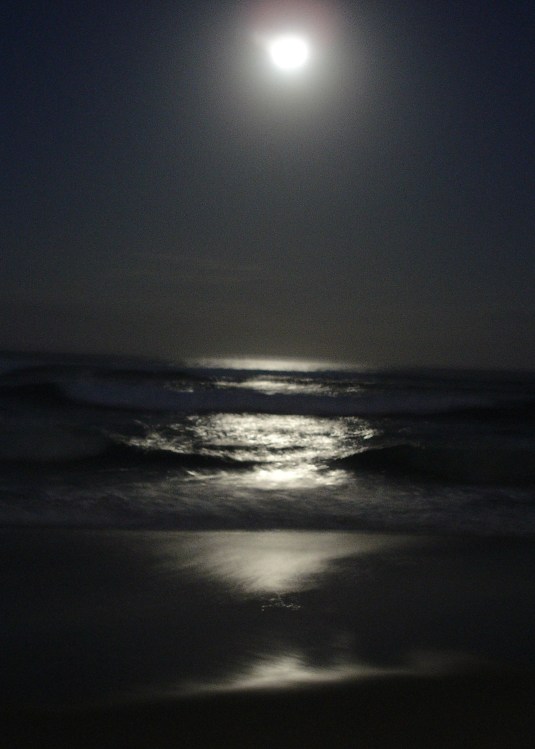I’ve recently returned to reading the Tao Te Ching. There truly are few works as simple and profound as this terse yet tremendous tome. I thought the best way to write about it again would be to return to the section I wrote about first last time.
The translation I used last time, Jonathan Star’s, felt almost like a Mahayana Buddhist’s presentation of emptiness and meditation. I found it surprising and compelling. Let’s see how it comes across with some other translations.
Keeping emptiness as their limit
and stillness as their center
ten thousand things rise
we watch them return
creatures without number
return to their roots
returning to their roots they are still
being still they revive
reviving they endure
knowing how to endure is wisdom
not knowing is to suffer in vain
knowing how to endure is to yield
to yield is to be impartial
to be impartial is to be the ruler
the ruler is Heaven
Heaven is the Way
and the Way is long life
a life without trouble
– Trans. Red Pine
Red Pine’s version of this passage feels much closer to what you’d expect of Taoist meditation — cultivating stillness. The stillness itself is what causes the energy and vitality of Heaven to stir (let the seeming contradiction of that hit you – stillness is the cause of great motion). It’s “turning the light around” as put in The Secret of the Golden Flower. This gives an example of a cosmology in action. Returning to Tao is returning to the creator of all. We might question the interpretation of “long life” as the immortal alchemy of the later Celestial Masters because it seems like this could have a much simpler spiritual significance — this approach to life in accordance with the Way may simply be fuller: more at ease and healthy. This is not necessarily due to some esoteric magic but could be seen as being from living in resonance with the Way of existence. The distinction is subtle, I admit, but the point is that we don’t need elaborate systems with hierarchies and three-part progressions of essences (which is where internal alchemy takes the ideas of passages like this), rather a simple return to stillness and emptiness. This is an elegant philosophical expression of our place in the universe – it needs no further esotericism.

Let’s compare this with the translation of Addiss and Lombardo:
Attain complete emptiness,
Hold fast to stillness.The ten thousand things stir about;
I only watch for their going back.Things grow and grow,
But each goes back to its root.
Going back to the root is stillness.
This means returning to what is.
Returning to what is
Means going back to the ordinary.Understanding the ordinary:
Enlightenment.Not understanding the ordinary:
Blindness creates evil.Understanding the ordinary:
Mind opens.Mind opening leads to compassion,
Compassion to nobility,
Nobility to heavenliness,
Heavenliness to Tao.Tao endures
Your body dies.There is no danger.
-Trans. Adidas & Lombardo
This translation feels both less cryptic and somehow less deep. In reading it, I feel like some aspect of Lao Tzu’s thought is a bit farther away, although the whole is more beautifully expressed. At the same time, I find the progression at the end to be more compelling. With Red Pine’s translation, I feel that the bigger picture of cosmology/relationship to Tao is clearer. The nuances of returning to the roots are better expressed there without the vagueness of “going back to the ordinary,” but the Te of what this relationship means for the practitioner is clearer here. A proper relationship with Tao – living in accordance with the Way – is enlightenment. Living otherwise is a blindness that creates evil. If we compare this idea of “evil” with Buddhism, we could say that insight into the Truth of things – Dharma – allows us to live properly and no longer create our own suffering. I find these two surprisingly close. Keep this in mind as we go further.
This proper relationship with Tao opens the mind (the wisdom of seeing as things are – we may take this mind opening as a receptivity to continue the path of enlightenment, to uphold wisdom, focusing on a priming of the ongoing process). The open mind leads to compassion – a heartfelt action of support for others. That leads to nobility – the elegant stature of the ruler (as is made clear in comparison with Red Pine’s translation). This is a greater way of being a human being: a virtuous (Te) being. That leads to transcending the human as heavenliness, and that leads to Tao. Thus, stillness and emptiness begin a transformation that flows from wisdom to loving action to transcendence to the Source.
Notice again that the closing lines haunt us with one last beautiful statement. The transcendence hinted at here in the progression and in the final lines about death is not necessarily a transcendence of the eternal life of the soul (i.e. something more in line with Internal Alchemy’s aims). It could rather be (and I feel more compellingly so) read as the recognition that the Tao is the ten thousand things. With Red Pine’s translation – the ten thousand things come out of stillness and then return to it: they are born and then they die. However, this hints at the conclusion: they were never actually separate from it at any point. Cultivating stillness allows us the wisdom to see that our body is Tao and is not Tao (in the sense that our death is not the death of the whole); not only does it allow us to see it – it allows us to sense it, to live it. The death of the body is the death of the body, but it is not the death of Tao. Tao lives through the body as one of the ten thousand things and then returns to Tao to become something else. Great life cultivates the energy of Tao in life; death is merely the Tao taking a form back into its roots — a form that it was all along. There is no danger – no you to die at all in a much greater sense; rather, the Tao that you are part of continues to go on and “you” shall return to its roots.
May this bring greater depth of meaning to this passage for you. May it help you find your own stillness and emptiness so that you may return to the roots of Tao.
Gassho!




Recent Comments